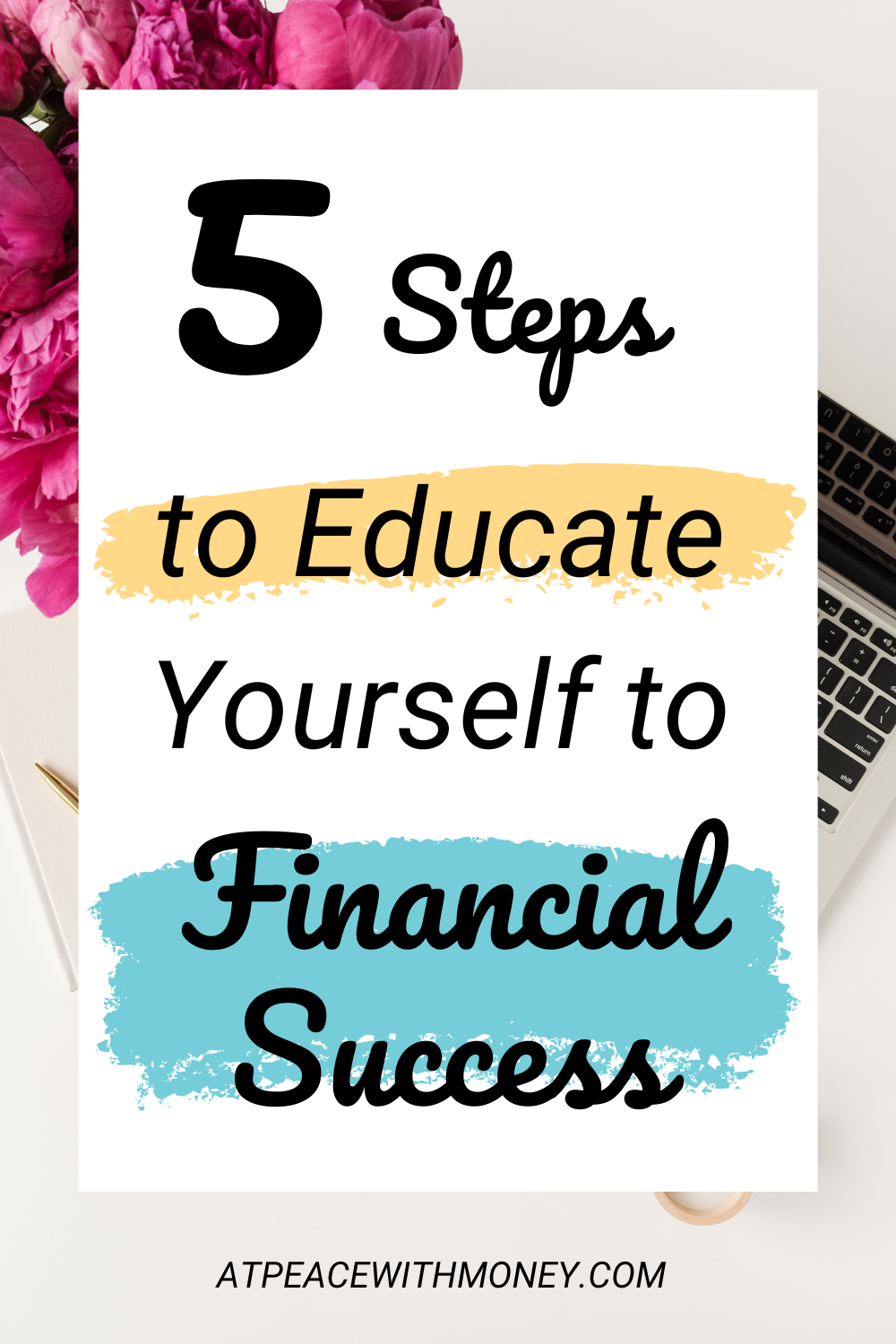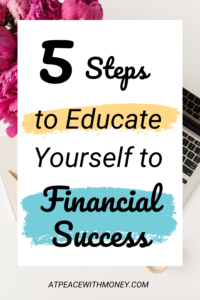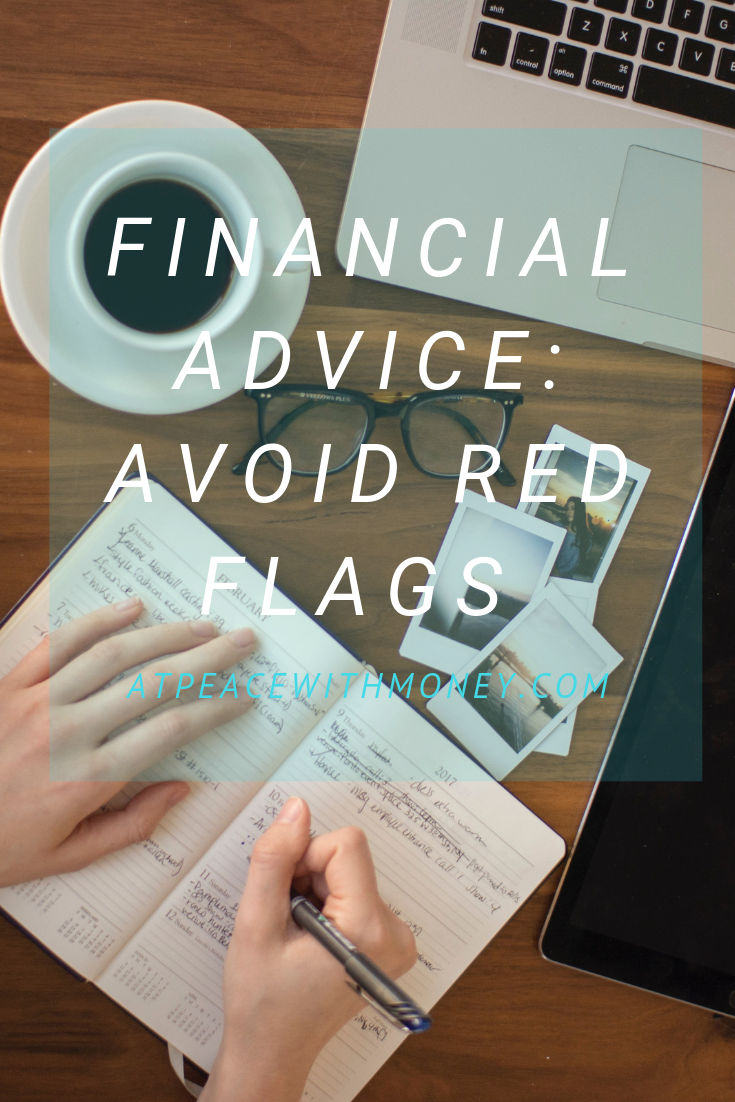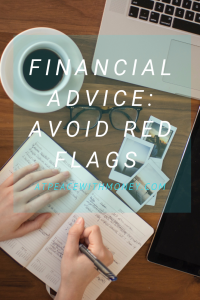5 Steps to Educate Yourself to Financial Success
#1 Consider Your Values, Goals, & Dreams
How do you want financial success to feel in your life? To answer this question, consider your values. These are the touchstones that will remind you of your desired feelings.
Now, let’s consider: What are your life goals? To quote my free e-Book Reach Your Life Goals: A Business Owner’s Guide, “they are not only possible, they are financeable.” And the more you know about money and how to use it, the more easily you can reach those goals.
For more ideas on this step, check out my article “Why Your Should Always Base Your Goals on Your Values.”
Once you’re clear on your goals, winnow them down by asking the question at the crux of Gary Keller’s book, The One Thing: “What’s the one thing I can do, such that by doing it everything else is easier or unnecessary?” This question will help point you in the direction you want to go.
#2 Choose a Learning Objective
Once you’ve considered all the above questions, you’ll likely have an idea of where you’re headed in life, and what financial steps you’ll need to take to get there. Based on your ONE big goal, choose a learning objective to focus your financial education efforts on.
For example, if you decide your one big goal is buying a house for you and your family, then your financial learning objective would be learning everything you can about home-buying. From here, you can resolve to research mortgage types, savings strategies, etc.
If you have clear life goals but are unsure what financial moves you need to get savvy on, make figuring this out your first learning objective. Start by researching financial strategies of people who have done what you want to do, talking to a money buddy about your goals, or speaking with experts to get some resources.
#3 Set Up Some Weekly Financial Learning Time
If you’ve been reading my blog for any length of time, then you know that I advocate for doing a weekly money check-in. Not only is this strategy a great way to get tuned into your money and start making better financial decisions, it’s also a my #1 strategy for achieving financial goals.
Why? Because if you set up a system to make time for something, you will accomplish it. The key is setting aside that time regularly and protecting it.
#4 Optional: Make a Timeline
Depending on your learning objective or the style of goal-setting you prefer, you may or may not feel called to do this. I’m including it as an option because making a timeline can be especially helpful in cases where things are time sensitive, such as in the case of contributing to an IRA.
Or, perhaps you’re the type of person who does better with finite timelines. It’s absolutely true that many of us do better with deadlines or milestones ahead of us. I work in 3- and 6-month coaching engagements with people in part because sometimes commitment to drastic financial change feels more possible over a shorter span of time.
If you know this about yourself, you might like to investigate setting 12-week learning goals. This idea comes from the book The 12-Week Year by Brian Moran and Michael Lennington, and might be worth checking out.
#5 Gather Your Resources and Begin!
This is the fun part! Start gathering your learning resources, and then get going. I have a couple recommendations to start you off:
- Here are my guides on how to find good financial advice and some red flags to watch out for
- Check out local universities and see if they offer free online financial literacy courses – many of them do!
- Some of my personal favorite financial education resources from other sites
- My best educational blog posts
- That list also includes my favorite financial reads, many of which are likely available at your local library!
If you enjoyed this post, you’ll almost certainly like reading my free e-Book, Reach Your Life Goals: A Business Owner’s Guide. Click here to download.









 If a resource ticks all these boxes for you, it will probably set you down the path to financial wellbeing! And it will feel a lot better than trying to read something that just isn’t for you. Next time, we’ll talk about starting the search for resources. For now, feel free to do some good ol’ googling. You can also check out my article on
If a resource ticks all these boxes for you, it will probably set you down the path to financial wellbeing! And it will feel a lot better than trying to read something that just isn’t for you. Next time, we’ll talk about starting the search for resources. For now, feel free to do some good ol’ googling. You can also check out my article on 



 Now it’s time to find some good resources that meet your criteria. Some googling might help with this, but you can also check out my post on
Now it’s time to find some good resources that meet your criteria. Some googling might help with this, but you can also check out my post on